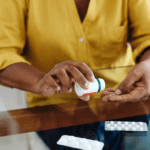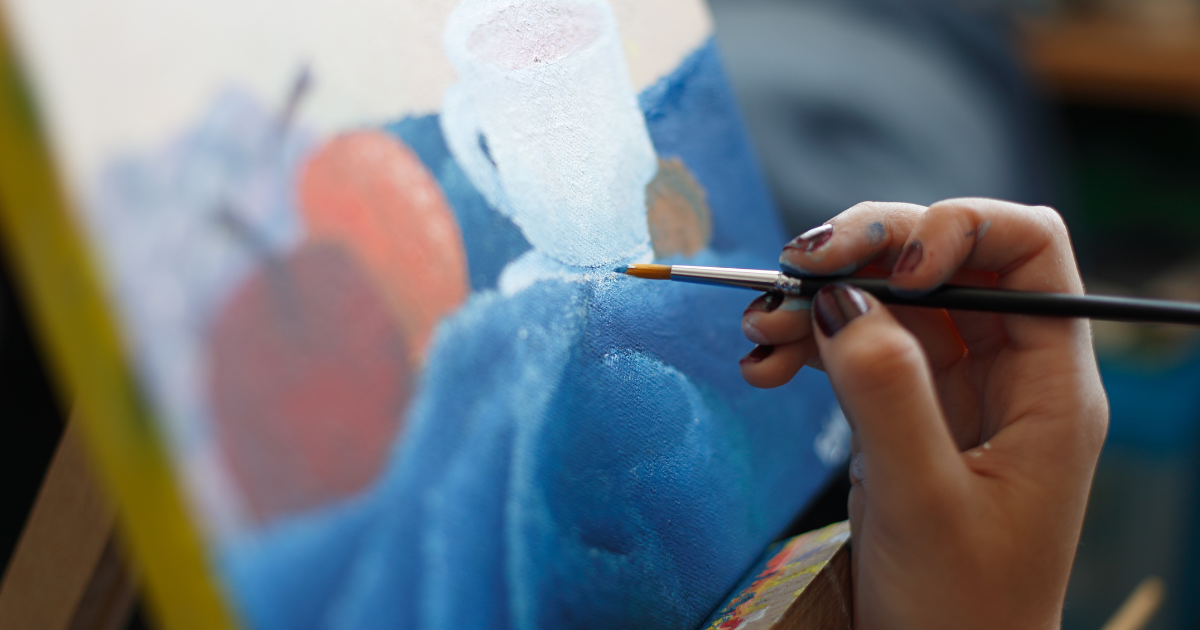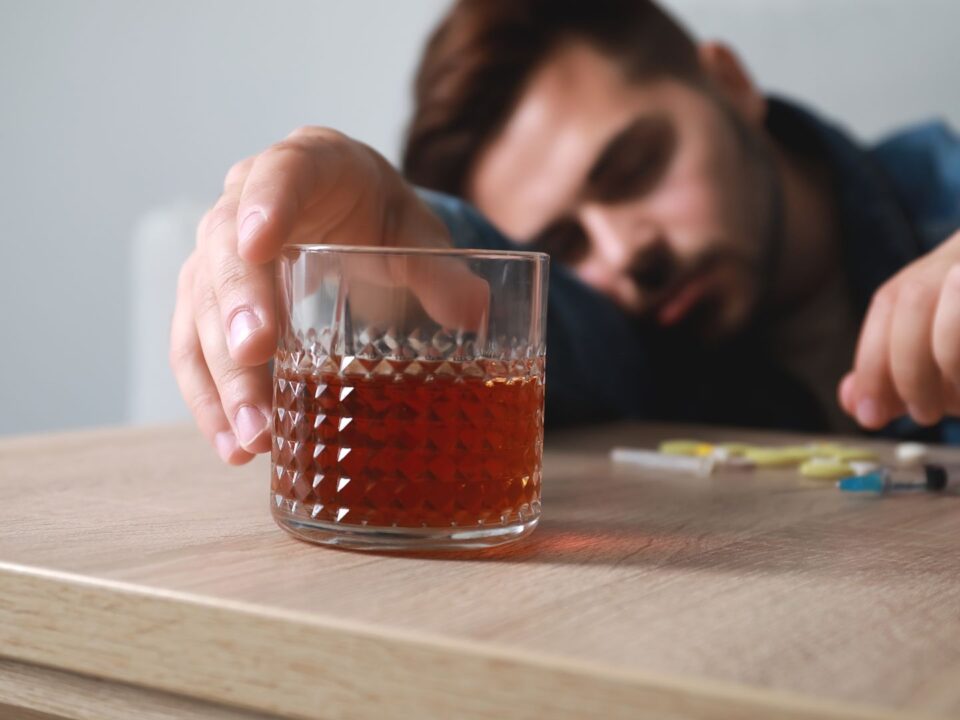
The Red Flags: Is Your Loved One Secretly Struggling with Substance Abuse?
May 3, 2024
Medication Management in Psychiatric Treatment
July 12, 2024In a world where addiction and mental health challenges often feel like insurmountable obstacles, one powerful tool stands out as a beacon of hope: expressive arts therapy. From painting to poetry, music to movement, this innovative form of therapy empowers individuals to tap into their innate creativity and find strength in the process.
Introduction: The Connection between Creativity and Healing
The healing power of creativity has been recognized for centuries, with ancient civilizations using artistic expression as a means of promoting mental, emotional, and spiritual well-being. In recent years, modern science has caught up to this concept, with numerous studies showcasing the positive impact of creativity on overall health and wellness.
But what exactly is the connection between creativity and healing? And how can it specifically benefit individuals struggling with addiction and mental health challenges? In this section, we will explore these questions in depth.
One of the key ways in which creativity promotes healing is by providing a safe outlet for emotions. Oftentimes, individuals with addiction or mental health challenges struggle to express their feelings in healthy ways. This can lead to bottling up emotions or expressing them in destructive behaviors.
Through various forms of creative expression such as art therapy, music therapy, writing, or dance therapy, individuals are able to channel their emotions into a tangible form. This allows them to release pent-up feelings and gain a sense of control over their experiences. As they continue to engage in creative activities, they may even discover new insights and perspectives about themselves and their journey towards healing.
Creative Expression as Self-Discovery
In addition to serving as an outlet for emotions, engaging in creative activities can also promote self-discovery and self-awareness. Through the process of creating something from scratch – whether it be a painting or a poem – individuals are able to tap into their inner selves and uncover aspects of their identity that may have been buried under layers of trauma or negative thoughts.
Furthermore, engaging in expressive arts therapy provides individuals with the opportunity to try new things without fear of judgment or failure. This sense of freedom can be especially beneficial for those who have struggled with low self-esteem due to their addiction or mental health challenges.
A Tool for Coping
Creativity can serve as a powerful coping mechanism for individuals facing addiction or mental health challenges. The act of creating can be a meditative and soothing experience, allowing individuals to escape from their problems and find moments of peace.
Moreover, the skills learned through expressive arts therapy – such as problem-solving, self-expression, and emotional regulation – can be applied to real-life situations. This empowers individuals to better manage stress and triggers in their daily lives.
The connection between creativity and healing is a multifaceted one that encompasses emotional release, self-discovery, and coping skills. In the following sections of this blog post, we will delve further into how expressive arts therapy specifically impacts individuals with addiction and mental health challenges.
What is Expressive Arts Therapy?
Expressive Arts Therapy, also known as Experiential or Creative Arts Therapy, is a holistic psychotherapy approach that utilizes various forms of creative expression to promote healing and growth in individuals. It combines traditional therapy techniques with artistic methods such as visual arts, music, movement, drama, and writing to facilitate self-discovery and emotional release.
This therapeutic modality is based on the belief that creativity can tap into deeper levels of consciousness and provide access to emotions and experiences that may be difficult to express through words alone. By engaging in different art forms, individuals are able to externalize their inner world and explore their thoughts, feelings, and experiences in a safe and non-judgmental environment.
One of the main goals of Expressive Arts Therapy is to help individuals reconnect with themselves by fostering self-awareness and self-expression. Through the use of creative mediums, clients are encouraged to explore their own unique way of communicating and processing information. This allows them to gain insight into their own behaviors, patterns, beliefs, and emotions.
In addition to promoting self-awareness, Expressive Arts Therapy also helps individuals develop coping skills and improve their overall well-being. The act of creating can be a powerful tool for managing stress, reducing anxiety levels, increasing self-esteem, improving communication skills, and enhancing problem-solving abilities. By engaging in the creative process under the guidance of a trained therapist,
individuals learn how to regulate their emotions while expressing themselves in healthy ways.
Another significant aspect of this therapy is its ability to address underlying issues that may contribute to addiction or mental health challenges. Through exploring different art forms and engaging in meaningful discussions with the therapist about their creations,
individuals are able to unearth hidden traumas or unresolved conflicts that may have contributed to their struggles. This process not only helps them understand the root causes but also provides an opportunity for healing from within.
Expressive Arts Therapy can also be used as a form of group therapy, allowing individuals to connect with others who may have similar experiences. This sense of community and support can be empowering for those struggling with addiction or mental health challenges, as they realize that they are not alone in their journey towards recovery.
Expressive Arts Therapy offers a unique and powerful approach to healing for individuals dealing with addiction and mental health challenges. By tapping into the creative process, it provides a safe and non-invasive way to explore emotions, gain insight into oneself, develop coping skills, address underlying issues, and find strength through self-expression. With the guidance of a trained therapist and the use of various art forms,
individuals can discover new ways of understanding themselves and their experiences while promoting personal growth and resilience.
The benefits of Expressive Arts Therapy for Addiction and Mental Health
Expressive Arts Therapy (EAT) is a form of psychotherapy that utilizes various creative mediums such as visual arts, music, dance, drama, and writing to facilitate emotional expression and promote healing. It has been shown to be highly effective in treating addiction and mental health challenges by providing individuals with a safe and non-judgmental space to explore their emotions, thoughts, and experiences.
One of the main benefits of EAT for addiction recovery is its ability to tap into the underlying emotions that often drive substance abuse. Many individuals struggling with addiction have deep-rooted traumas or unresolved issues that they may not be able to express through traditional talk therapy alone. EAT provides a unique outlet for these emotions to surface and be processed in a safe and supportive environment. This can lead to increased self-awareness, insight, and understanding of the root causes of addictive behaviors.
Moreover, engaging in creative activities allows individuals to express themselves without using words. This can be especially beneficial for those who struggle with verbal expression or have difficulty identifying their feelings. Through art-making or movement-based exercises, clients can externalize their internal struggles and gain a greater understanding of their emotional states.
In addition to aiding in addiction recovery, EAT has also been found effective in managing symptoms of mental health disorders such as depression, anxiety, PTSD, and bipolar disorder. The process of creating art or engaging in other expressive activities releases endorphins – feel-good chemicals that help alleviate stress and improve mood. This can provide much-needed relief from the intense emotions associated with mental health challenges.
Another significant benefit of EAT is its focus on the present moment. Addiction often stems from an attempt to escape difficult emotions or memories from the past. Similarly, many mental health disorders are characterized by excessive worry about the future. By engaging in creative activities that require full attention on the task at hand, individuals are able to let go of past regrets or future fears and focus on the present moment. This can lead to a sense of calmness and increased mindfulness, which are both crucial for managing addiction and mental health challenges.
Expressive arts therapy offers a holistic approach to treating addiction and mental health issues. By combining creative expression with therapeutic techniques, individuals are able to gain insight into their struggles, process difficult emotions, develop coping skills, and ultimately find strength through creativity. It is a powerful tool that has helped many individuals on their journey towards recovery and improved mental wellbeing.






